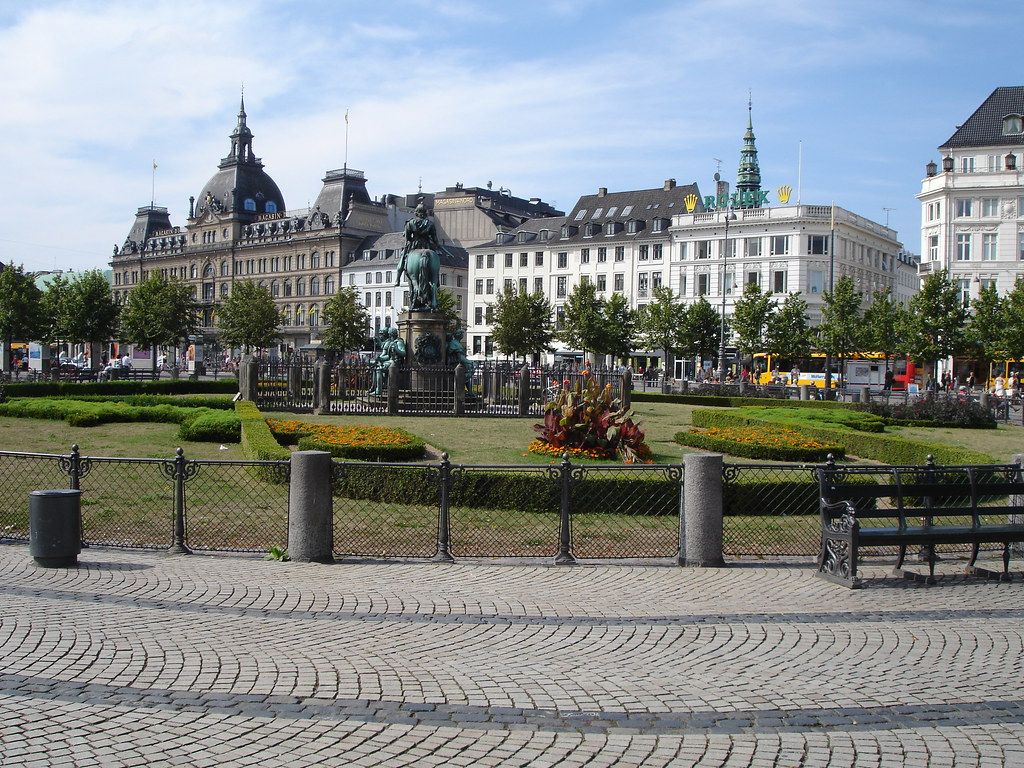CHAT
WITH US
WITH US
GET A
QUOTE
have questions? call us
+44 3330 907053
Home
/
Guides
/
Moving Guides
/
Moving to Copenhagen from the UK: Your Complete Guide
Moving to Copenhagen...

Moving Guides • Europe • 24 Oct 2024
Share this article
The idea of relocating to Copenhagen appeals to many Brits, and it's easy to understand why. The Danish capital consistently ranks among the world's most liveable cities, offering an enviable combination of career opportunities, cultural richness, and that famous Scandinavian quality of life. However, moving to Denmark requires careful planning, particularly in the post-Brexit era, where new regulations have made the process more complex for UK citizens.
Before diving into the details, here are the crucial points to consider when planning your move:
Planning a successful move to Copenhagen requires careful organisation and timing. This checklist breaks down the key tasks into manageable timeframes, ensuring you don't overlook crucial steps in the process.
The Danish capital is a city that masterfully balances history with modernity, offering residents a high quality of life that stems from smart urban planning, strong social systems, and a deep-rooted appreciation for work-life balance.
Copenhagen's appeal lies not just in its picturesque canals and cycling culture, but in its approach to everyday living. The city embraces the concept of 'hygge' - the Danish art of creating cosy, contented moments - while simultaneously pushing boundaries in areas like sustainability, design, and innovation. This combination creates an environment where career growth and personal wellbeing can truly coexist.
The Danish capital offers a unique cultural tapestry that weaves together historical charm and contemporary innovation. Unlike many major European cities, Copenhagen maintains a remarkably relaxed atmosphere despite its status as a global business hub. Streets are clean and safe, public spaces are well-maintained, and there's a palpable sense of community even in the heart of the city.
Key aspects include:
Understanding Copenhagen's weather patterns helps you prepare both mentally and practically for life in the city. The climate can be quite different from what you're used to in the UK, particularly regarding daylight hours and seasonal activities.
Danish weather is characterised by:
The post-Brexit era has brought significant changes to how UK citizens can move to Denmark. Understanding these requirements is crucial as they form the foundation of your relocation plan. Unlike before, Brits now need to navigate a more complex system of permits and registrations, but with proper planning, the process is entirely manageable.
Denmark offers several pathways to residency, each designed for different circumstances and purposes. The key is identifying which permit best suits your situation and ensuring you meet all requirements before applying. This process requires careful attention to detail and thorough documentation.

Securing accommodation in Copenhagen presents unique challenges and opportunities. The city's housing market is notoriously competitive, with high demand and limited supply, particularly in popular areas. Understanding how the market works, knowing where to look, and being prepared with necessary documentation can significantly improve your chances of finding the right home.
Danish rental contracts and processes differ substantially from those in the UK, and the financial requirements can be surprising for newcomers. However, the quality of housing is generally high, with well-maintained properties and strong tenant rights once you secure a place.
Copenhagen's neighbourhoods each tell their own story, and choosing the right area can significantly impact your experience of the city. Each district has its own character, amenities, and community feel, making it crucial to understand their differences before making a decision.
Often called Copenhagen's most family-friendly district, Østerbro combines elegant architecture with abundant green spaces and a relaxed atmosphere. This northern neighbourhood attracts many international residents, particularly those with families, due to its excellent schools and proximity to both the city centre and the coast.
Key features include:
Average rental prices:
Once a working-class district, Vesterbro has transformed into one of Copenhagen's most vibrant and trendy areas. This neighbourhood appeals particularly to young professionals and creatives, offering a perfect blend of cultural activities, nightlife, and everyday amenities.
Notable aspects include:
Though technically its own municipality within Copenhagen, Frederiksberg represents the city's most prestigious address. This leafy enclave offers a more spacious, elegant alternative to the bustling city centre while maintaining excellent connections to all parts of Copenhagen.
Characteristics include:
Securing housing in Copenhagen requires a strategic approach and understanding of local practices. The market moves quickly, and being prepared with all necessary documentation and finances is crucial for success.
Unlike in the UK, most rental properties in Copenhagen are leased directly by property owners or through housing associations. Real estate agents (ejendomsmægler) typically handle sales rather than rentals. This direct rental market requires a different approach to house hunting.
Essential steps include:
Required documents typically include:
The Danish work culture represents a significant shift from what many British professionals are used to, but it's often cited as one of the main reasons expats choose to stay in Denmark long-term. Understanding both the practical aspects of finding work and the cultural nuances of Danish workplace culture is crucial for a successful transition.
Danish work culture is built on trust, autonomy, and work-life balance. Hierarchies are notably flatter than in the UK, with open communication between all levels being the norm. The famous Danish work-life balance isn't just a concept - it's protected by law and deeply embedded in the culture.
Key aspects include:
The Copenhagen job market offers numerous opportunities for English-speaking professionals, particularly in sectors like technology, sustainability, and creative industries. However, the job search process often differs from UK practices, with networking playing a crucial role.
Key job search strategies:
Danish workplace culture can initially seem unusually informal to British professionals, but this informality is underpinned by a strong sense of responsibility and trust. Understanding these cultural nuances is crucial for successful integration into Danish working life.
Key cultural aspects:
The Danish healthcare system offers comprehensive coverage and high-quality care, but understanding how to access it requires some initial navigation. As a resident, you'll have access to the public healthcare system once you obtain your CPR number and yellow health insurance card.
The Danish healthcare system operates on a principle of equal access for all residents. Once registered, you'll be assigned a general practitioner (GP) who acts as your primary point of contact for healthcare needs.
Key points include:
While the public system is comprehensive, some residents choose to supplement with private insurance for:
Adapting to daily life in Copenhagen involves understanding various practical aspects, from transportation to shopping and social customs. The city's efficient infrastructure and well-organised public services make many aspects of daily life smoother than you might expect.
Copenhagen's transport system is a model of efficiency, with extensive cycling infrastructure complementing public transport. The city's compact size and flat terrain make cycling a practical daily option for many residents.
Key transport options:
While Copenhagen can be expensive, understanding local shopping habits and where to find the best deals can help manage costs. The city offers everything from budget supermarkets to high-end boutiques.
Shopping options include:
Successfully relocating to Copenhagen requires careful planning and attention to detail, but the rewards of living in this vibrant, sustainable city make the effort worthwhile. From its excellent quality of life to its strong job market and cultural offerings, Copenhagen offers an exciting opportunity for UK citizens looking to experience life in one of Europe's most liveable cities.
Need help with your relocation to Copenhagen? Deliver1 specialises in international moves, with particular expertise in Scandinavian relocations. Our team understands the unique requirements of moving to Denmark and can ensure your belongings arrive safely at your new Copenhagen home. Contact us today for a personalised quote and let us help make your move to Copenhagen as smooth as possible.
We love hearing from you-so please get in touch with any questions or queries.
We love hearing from you-so please get in touch with any questions or queries.
Working hours
Mon - Sat: 08:00 - 17:00
Sun: Closed
Call
+44 3330 907053Location
Unit 3, Newyears Green Lane
Newyears Green
Uxbridge
UB9 6LX
United Kingdom
